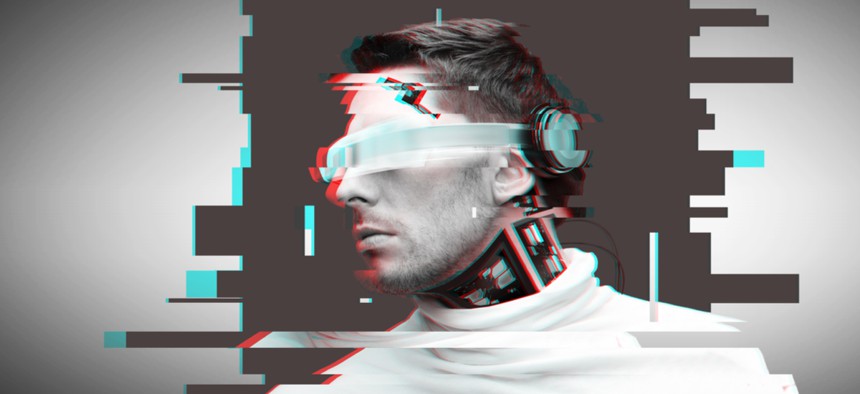What Will Our Lives Be Like as Cyborgs?

Syda Productions/Shutterstock.com
A case for embracing the “augmentation” of human minds and bodies
If you squint a little, you can see the Apple Store clerk as a cyborg, a hybrid of human and machine. Each store is flooded with smartphone-wielding salespeople who are able to help customers with everything from technical questions and support to purchase and checkout. There are no cash registers with lines of customers waiting with products pulled from the piles on the shelves. The store is a showroom of products to explore. When you know what you want, a salesperson fetches it from the back room. If you’re already an Apple customer with a credit card on file (and as of 2014, there were 800 million of us), all you need to provide is your email address to walk out the door with your chosen product.
Rather than using technology to eliminate workers and cut costs, Apple has equipped them with new powers in order to create an amazing user experience. By so doing, they created the most productive retail stores in the world.
Even the very first advances in civilization had this cyborg quality. The marriage of humans with technology is what made us the masters of other species, giving us weapons and tools harder and sharper than the claws of any animal, projecting our strength at greater and greater distance until we could bring down even the greatest of beasts in the hunt, not to mention engineer new crops that produce far more food than their wild forebears, and domesticate animals to make us stronger and faster.
In short, there are two types of augmentation, physical and mental, in a complex dance. One frontier of augmentation is the addition of sensors to the physical world, allowing data to be collected and analyzed at a previously unthinkable scale. That is the real key to understanding what is often called the “Internet of Things.” Things that once required guesswork are now knowable. (Insurance may well be the native business model of the “Internet of Things” in the same way that advertising became the native business model of the internet, because of the data-driven elimination of uncertainty.) It isn’t simply a matter of smart, connected devices like the Nest thermostat or the Amazon Echo, the Fitbit and the Apple Watch, or even self-driving cars. It’s about the data these devices provide. The possibilities of the future cascade in unexpected ways.
NEXT STORY: Facebook Thinks So Little of Us





